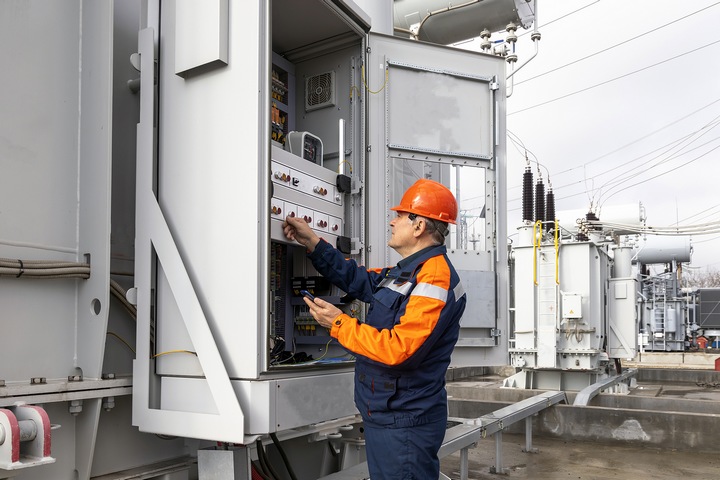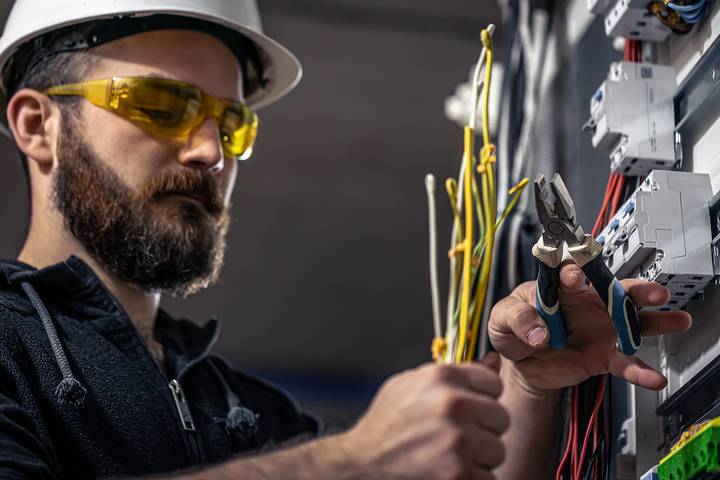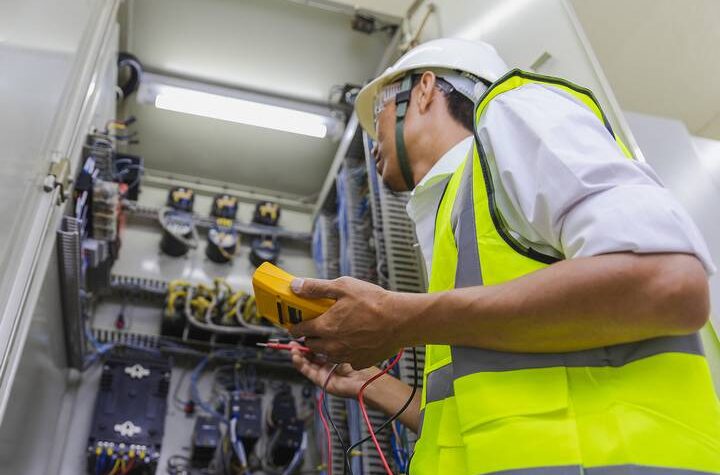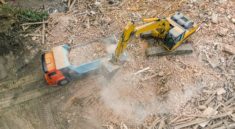Becoming an electrician is a challenging trade that takes you in many directions. You can work indoors or outdoors, going from one job site to the next or spending your entire career at one location. Your main focus is installing and maintaining wiring systems and repairs, and you can be a self-employed independent contractor or an employee for an electric company or firm.
When you decide to enter the trade, you start as an apprentice. All required is a high school diploma and a pre-apprenticeship program. You will then work on the job alongside journeymen electricians to get 2000 hours of work before heading back to school to take eight weeks of training per year for four years. Then, you become a journeyman.
There are two main categories of electricians:
- Linemen (outside electrician)
- Wiremen (inside electrician)
Have you considered becoming an electrician and wondering what the job entails? Here are the twelve different types of electricians you can become:
Type #1: Industrial Electricians

As an industrial electrician, your job is the instillation and repair of large electrical equipment such as:
- Power plants
- Factories
- Mines
- Processing plants
This involves complex machinery and different manufacturing components in a large system.
Type #2: Commercial Electrician

You may be familiar with this type as it includes construction jobs in commercial buildings. On a construction site, you will be working to install new electrical equipment and wiring throughout the build. Other commercial applications include repairing and maintaining electrical systems in offices, hotels, hospitals, retail, and many other commercial buildings.
Type #3: Residential Electrician

New house building is booming around the country, and every home needs electricity. This is usually a smaller building with typical components from one to the other, and you may be working on multiple jobs or buildings like on a condo or townhouse project.
Repair and maintenance of older homes is another residential avenue. You can work for a company that sends you to homes to troubleshoot problems, upgrade wiring or install new electrical devices like fans, baseboard heaters and lighting.
Type #4: Power Linemen
These men and women work to install, repair and maintain the power grid from towers, poles and underground lines. They may work in trenches or up extension ladders and aerial bucket lifts on vans and trucks as part of their daily workload.
Type #5: Solar Panel Electricians
This involves the installation of solar panels and all electrical connections and components. It can be independent or connected to the grid and have components that track the sun’s movement.
Type #6: Wind Turbine Electricians
Working on these structures involves incredible heights of up to 400 ft in the air during installation and maintenance to keep them running.
Type #7: Highway Systems Electricians
A highway electrician works on road system electronics, including traffic lights and roadway lighting. Your daily tasks take you out in all types of weather, especially extreme weather during wind storms and power outages. You will also work with heavy equipment to install and maintain these electrical components and systems.
Type #8: Automotive Electricians
As an automotive electrician, you are involved in various vehicle systems that require electrical power. Your work includes heating, ignition, lighting, fuel injection, anti-lock braking and air conditioning systems. Your projects will often involve:
- Cars
- Trucks
- Emergency vehicles
- Buses
- Commercial transport vehicles
Type #9: Security and Fire Alarm Installers
This is an in-demand position because all new builds require fire alarms, fire/smoke detectors, and upgrades to existing buildings.
Security is a vast field that covers:
- CCTV cameras
- Security systems
- Keyless entry
- Biometric scanning
- Alarm systems
- Facial recognition
High-tech equipment is installed and must be maintained and upgraded as well.
Type #10: Marine and Aviation Electricians
Watercraft and aircraft have electrical components throughout their structures and machinery. Electricians work for manufacturing companies during the construction of planes and boats and with ongoing maintenance to test and repair all components to ensure their safe operation.
Type #11: Electrical Contractors
So far, we have gone over occupations within the electrical field. You can also become a contractor and have a team of journeymen and apprentices working various jobs in residential, commercial and industrial settings. This can be a small business or a large corporation.
Type #12: Electrical Inspectors
Another route you can take is to become an electrical inspector. Here your work is to inspect and examine the instillation of electrical components and systems within construction projects. All work must be done according to the code and safety guidelines, so you must fully understand all aspects of the trade. You may also be an inspector for residential projects where people do additions and renovations.
As you can see, working as an electrician is more than buying a set of screwdrivers and a pair of leather gloves. There is a wide variety of jobs you can go into, and having a trade under your belt will also help you outside of work at your own home. Take on the challenge of becoming an electrician; your reward is great pay and many options in your field.




